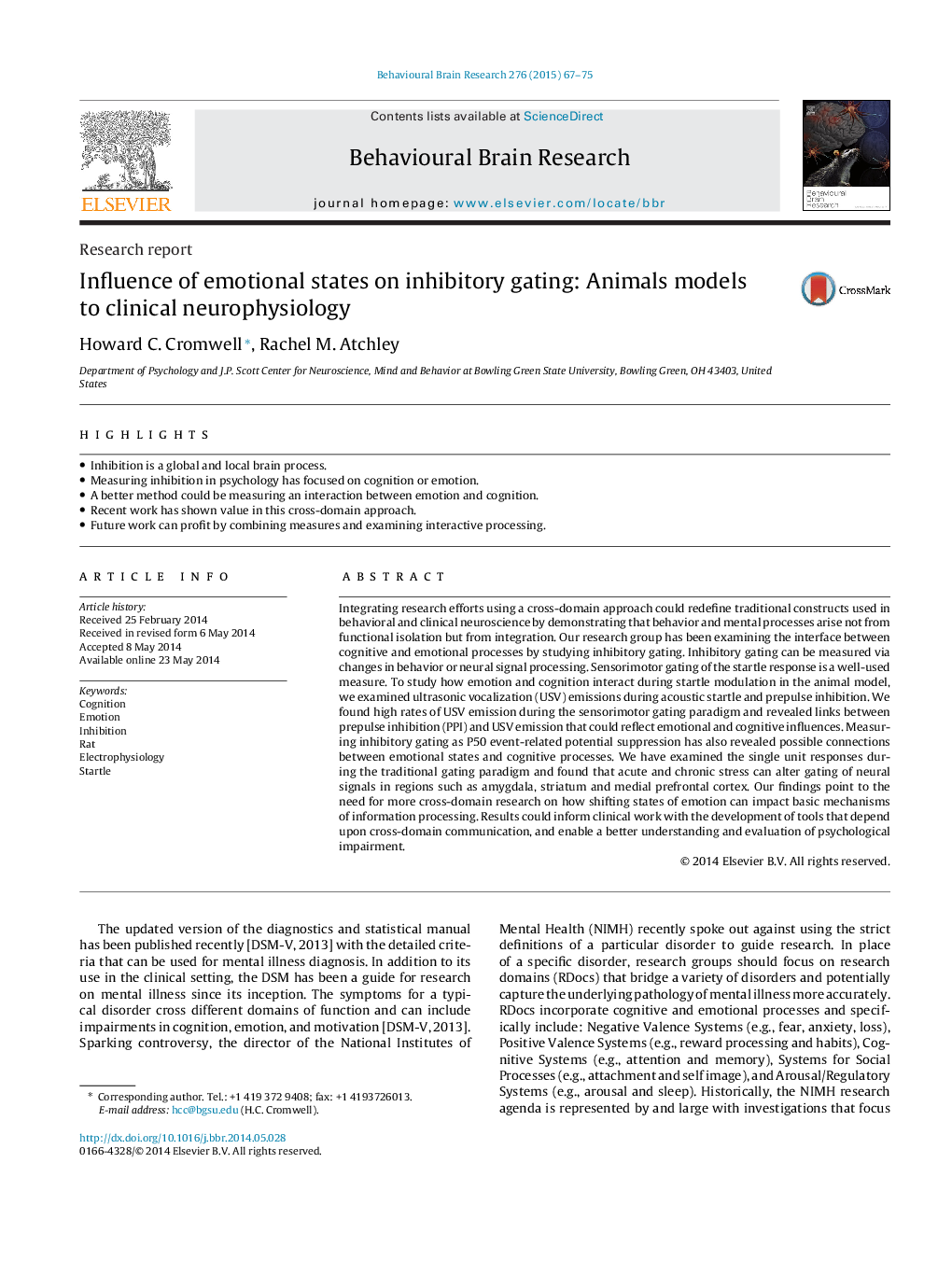| Article ID | Journal | Published Year | Pages | File Type |
|---|---|---|---|---|
| 6257430 | Behavioural Brain Research | 2015 | 9 Pages |
â¢Inhibition is a global and local brain process.â¢Measuring inhibition in psychology has focused on cognition or emotion.â¢A better method could be measuring an interaction between emotion and cognition.â¢Recent work has shown value in this cross-domain approach.â¢Future work can profit by combining measures and examining interactive processing.
Integrating research efforts using a cross-domain approach could redefine traditional constructs used in behavioral and clinical neuroscience by demonstrating that behavior and mental processes arise not from functional isolation but from integration. Our research group has been examining the interface between cognitive and emotional processes by studying inhibitory gating. Inhibitory gating can be measured via changes in behavior or neural signal processing. Sensorimotor gating of the startle response is a well-used measure. To study how emotion and cognition interact during startle modulation in the animal model, we examined ultrasonic vocalization (USV) emissions during acoustic startle and prepulse inhibition. We found high rates of USV emission during the sensorimotor gating paradigm and revealed links between prepulse inhibition (PPI) and USV emission that could reflect emotional and cognitive influences. Measuring inhibitory gating as P50 event-related potential suppression has also revealed possible connections between emotional states and cognitive processes. We have examined the single unit responses during the traditional gating paradigm and found that acute and chronic stress can alter gating of neural signals in regions such as amygdala, striatum and medial prefrontal cortex. Our findings point to the need for more cross-domain research on how shifting states of emotion can impact basic mechanisms of information processing. Results could inform clinical work with the development of tools that depend upon cross-domain communication, and enable a better understanding and evaluation of psychological impairment.
